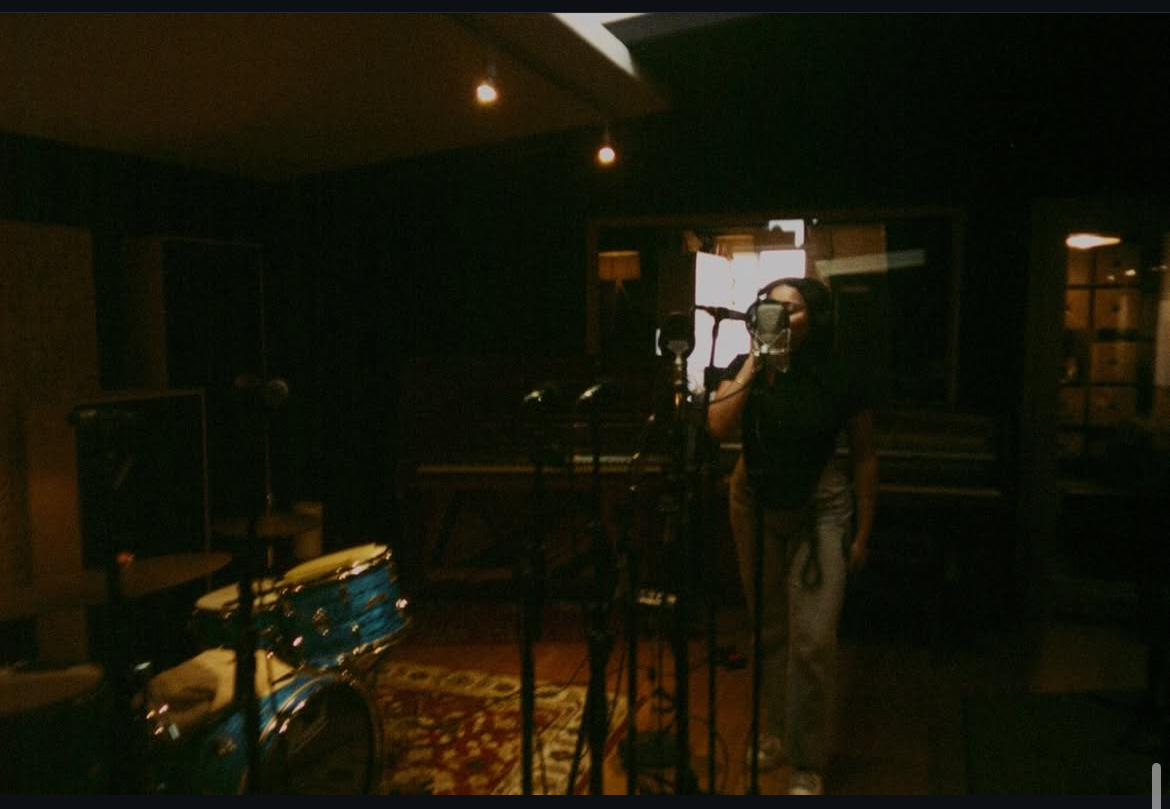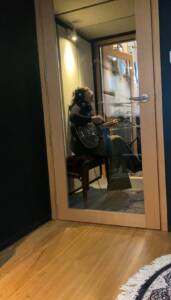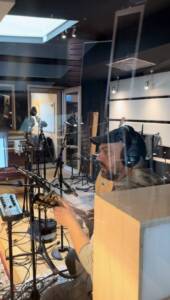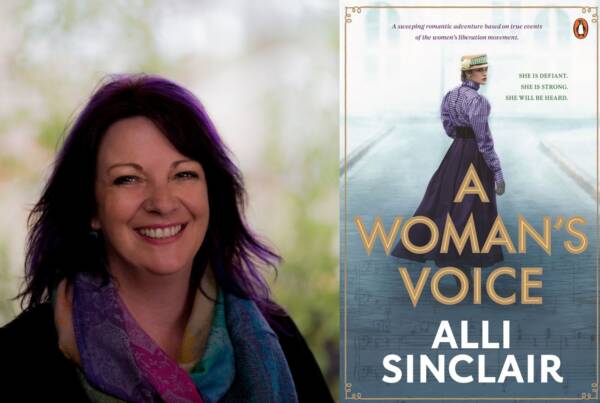Words by Caisha Sprout
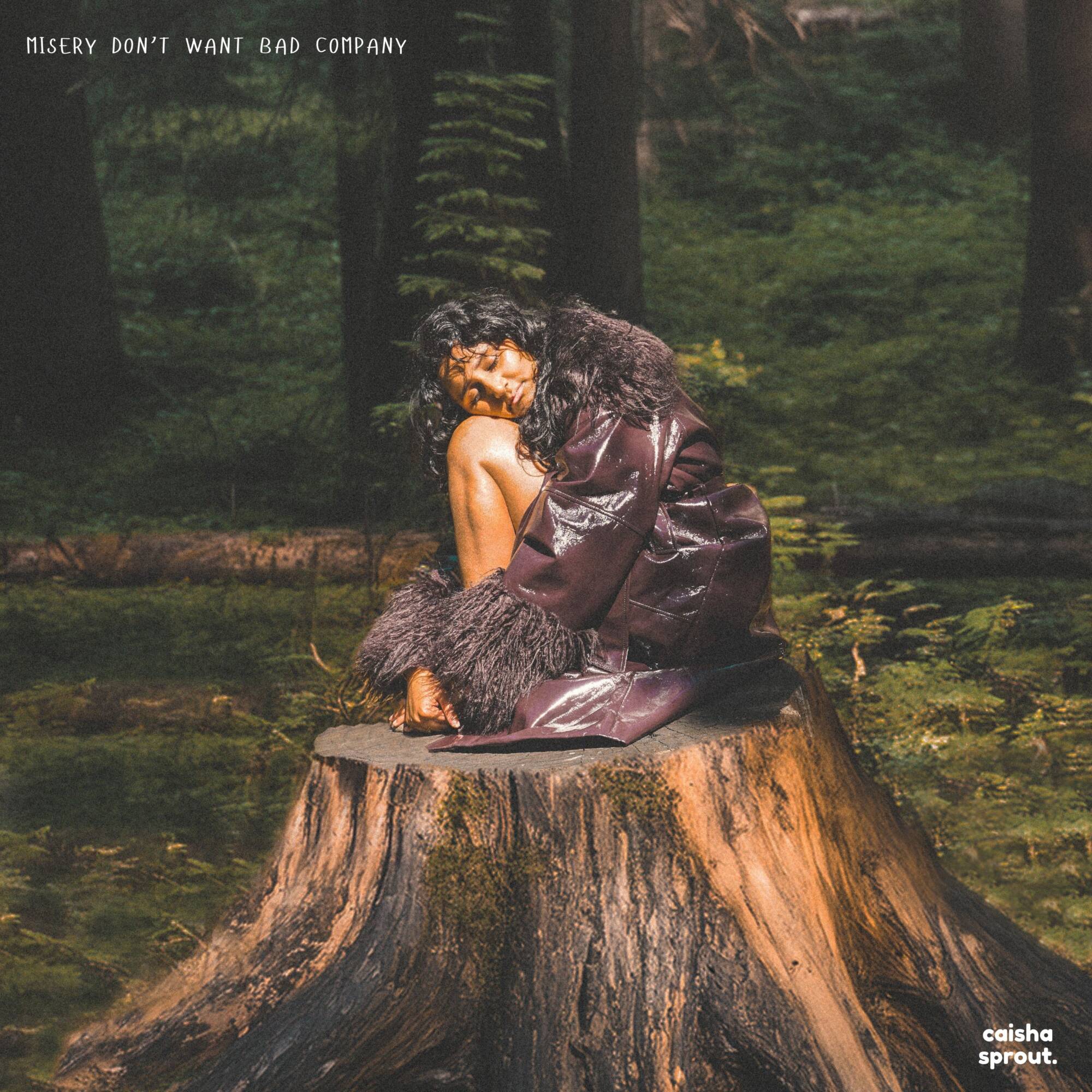
How misery and bad company led to a lot of happiness and the best company a gal could ask for. Image by BeReel Photography
The Vision
I always found myself reaching for something in my music that I couldn’t quite access—this idea of an ‘organic’ sound. I’ve spent countless hours lying on the floor or sitting in my car long after I’ve arrived home, obsessing over live versions of songs and production that puts you right in the centre of the room.
There’s something about that ‘organic-sounding’ music that can make you feel like you’re in a movie, at the heart of a universe where the song belongs to the listener. It’s always felt like some kind of magic. Which I guess, is what music is for me: a mysterious gravitational force that takes you places if you just let it.
The Backstory
One day, after a series of unfortunate events, I wrote the song “Misery Don’t Want Bad Company.” It came after a final-straw moment in a friendship, and the song just sort of fell out of me—the way the ones that really stick tend to do.
It stemmed from a collection of moments that only someone like Dolly Alderton really prepares you for in your mid-twenties, when your brain finishes developing and it feels like you’ve been picked up by the universe, taken on a trip through space, and dropped back into your everyday life in one fell swoop. It hit me like a truck. I realised that a lot of the things I had put up with or thought were normal, actually weren’t things I had to accept.
I had known of Charlotte Abroms and Jono Steer for years. I almost worked with them on one of my first releases, but the timing didn’t align. Fast forward three years later, and somehow a blip opened up in the universe—Charlotte was looking for new artists to work with. I went for it, driven by a gut feeling, and it felt instantly right. She truly empowered me and my music.
I came into our first meeting just wanting to release one song. I left with her talking about it becoming an EP and encouraging me to co-produce it—something I’d never done before. I left that meeting, and every one after, feeling inspired, empowered, and nervously excited about what was to come. I’m so grateful for the woman she is, and the genuine kindness she brings to an industry that can often feel greedy and unforgiving.
The Recording Process
Fast forward a month or so later, and I’m in the studio with Jono (my producer) and Alex (my drummer) for our first recording day of “Misery Don’t Want Bad Company.”
“When I heard the demo of ‘Misery Don’t Want Bad Company,’ I instantly felt connected to it. There was a depth and intention that you only hear so often with demos. When a song like ‘Misery’ comes along, it draws the best out of everyone—as if the song is leading everyone down the right musical path, pulling in the right people to add their magic and guide it along the way. Of course, that’s Caitlin—not the song—doing the leading. Not just in the studio, but from within the song she’d already poured so much soul into.” — Jono Steer
After releasing and recording a fair few songs, I began to understand the kind of energy I wanted to create and surround myself with. It was important to me that the music carried a story-led production—where each instrument had a voice, a narrative of its own. I couldn’t have asked for a better producer than Jono.
I was also lucky enough to be surrounded by a group of kind, exponentially talented creatives who helped bring this story to life. We recorded Misery and parts of the EP across several sessions during the Learn to Engineer Residency at Dare Studios, each time adding a new, important narrator to the story.
Alex and I recorded the drums and resonator guitar completely in free time—it was a spiritual experience having to lock into each other to find the pocket. The drums became the confidence of the track—the assured voice.
The Wurlitzer, played by the incredible Julia Wallace, was my supportive friend, echoing my words and backing me up. Ironically, this was the perfect role for Julia—because from the moment we met, it felt like we were long-lost childhood friends.
Having pedal steel on this track (or any track!) was a musical bucket list moment for me, and Joe Orton absolutely delivered. It became such a vital part of the song—the most emotional voice in the arrangement. To me, it carried the words that were just too hard to say.
The mandolin and slide guitar, played by Jono Steer, added the playfulness the track needed. These instruments were the bones around which the story was built. Co-producing and sculpting the final version was one of the most fun and rewarding creative experiences I’ve had.
There were a few cheeky other things on the track—but these instruments held the strongest voices in the story.
—

